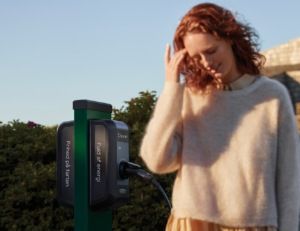News
Rush to drop Russian gas hurting both homeowners and electric car drivers
This article is more than 3 years old.
Government pledges action in bid to wean country off its dependency, but for hundreds of thousands it won’t come cheap to install the necessary heat pump

Nobody is immune to the rising energy costs … not even electric car drivers (photo: clever.dk)
The electric car company Clever has confirmed it will soon be raising some of its prices by up to 170 percent, reported TV2 this morning.
The purchase price of electricity, Clever explains, has risen from 0.66 kroner per kilowatt hour to 1.78 amid fears it might rise above 3.00 kroner by the end of the month.
From June, Clever intends to raise its subscription cost and also introduce a supplementary sur-charge, which will then be reviewed every four months until the end of the conflict in Ukraine.
Subscribers will have the opportunity to cancel their contract should they wish.
Help by the end of 2022
Clever is just one of many energy companies affected by the War in Ukraine.
Worst hit has been the natural gas sector, and earlier this week the government confirmed it intends to help the 400,000 Danish households solely reliant on natural gas to switch over to another energy source.
By the end of the year, households heated by a gas or oil boiler can expect to be notified about their best options: in most cases, whether it is getting a heat pump or switching over to district heating.
The target was outlined in the energy initiative ‘Denmark can do more II’, which also includes plans to step up production of Danish gas to cover the shortfall and ensure the country uses as little Russian gas as possible.
Most homeowners will have to pay
For remote households with no hope of switching to district heating, the cost will be immense. A heat pump generally costs 100,000 kroner to install.
Like it did with the high heating bills over the winter, the government wants to help, but while it has said low income households will be able to access subsidies, it still sounds like it will cost them a fair amount.
The government has proposed low interest loans to cover the cost of switching over, and already Finans Danmark has said it will forego many of the fees normally involved in such a purchase.
Nevertheless, the blue bloc would like to see more help provided. Right bloc allies argue the switchover will make it cheaper for the homeowners in the long-term as their energy bills will ultimately decrease.
While the future looks bleak for the 400,000 Danish households, ultimately it is good for the environment, as many oil and gas boilers will be replaced by green alternatives.










































